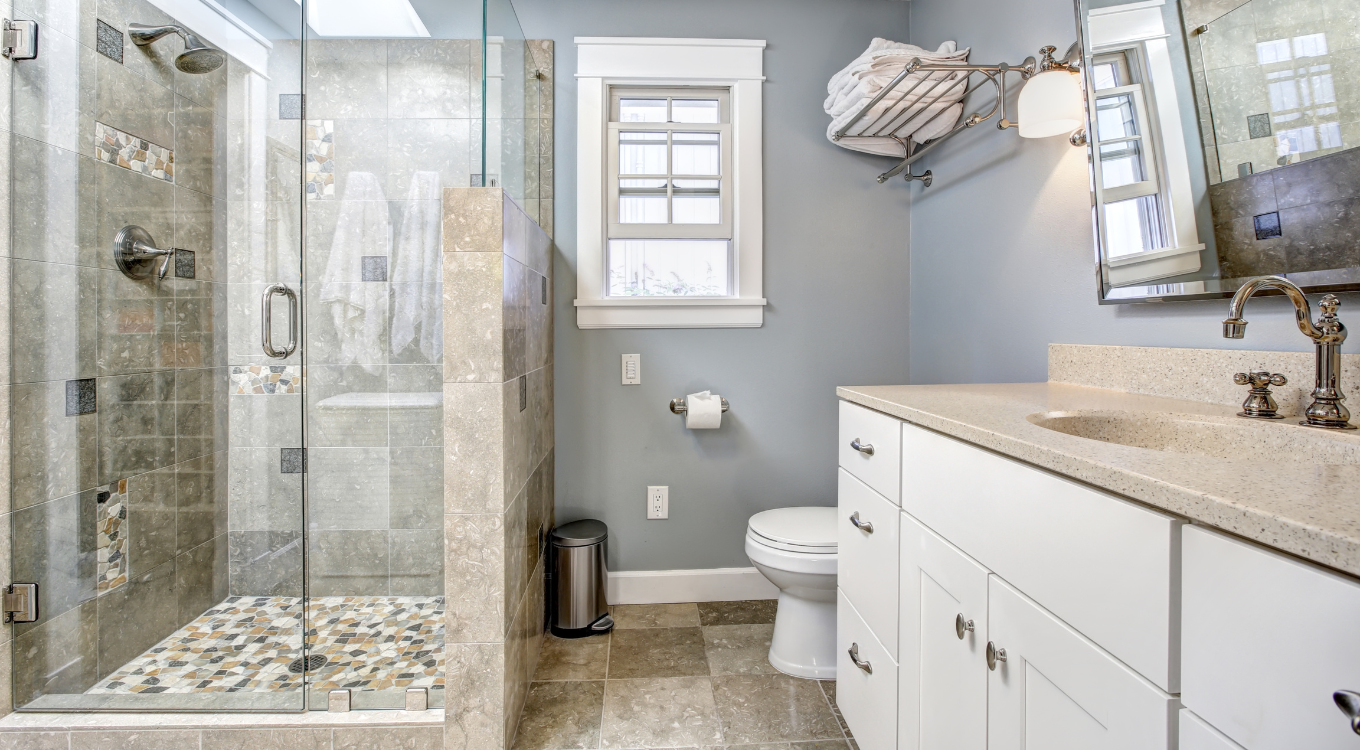Introduction
Imagine stepping into a hotel lobby where the windows transform from transparent to opaque, providing you with an intimate atmosphere without compromising on the stunning exterior view. This is the magic of smart glass, a cutting-edge innovation revolutionising the interior design of hotels around the world.
Introduction to Smart Glass in Hotel Interior Design
In the ever-evolving landscape of hospitality, hotels are continuously seeking innovative ways to enhance guest experiences. Smart glass has emerged as a game-changer in interior design, offering a harmonious blend of aesthetics and functionality. This blog delves deep into the realm of smart glass, exploring its applications, benefits, design possibilities, and the impact it has on the hotel industry.
How Does Smart Glass Work?
At its core, smart glass operates on the principle of electrochromism, which allows it to change its transparency in response to an electric current. This means that with a simple switch, hoteliers can transform transparent glass panels into frosted or tinted surfaces, providing instant privacy or creating an ambiance that aligns with the desired mood.
Benefits of Using Smart Glass in Hotel Interiors
Enhanced Privacy
Privacy is a paramount consideration for hotel guests. Smart glass eliminates the need for traditional curtains or blinds by offering an on-demand privacy solution. With a touch, the glass can turn from clear to opaque, ensuring that guests feel comfortable and secure during their stay.
Natural Light Optimisation
Hotels often strive to maximise natural light to create an inviting atmosphere. Smart glass allows for the control of light diffusion, reducing glare and creating a warm, well-lit environment. This not only enhances the aesthetics of the space but also contributes to energy savings.
Energy Efficiency
In the era of sustainability, energy efficiency is a significant factor in design decisions. Smart glass helps regulate indoor temperatures by adjusting its tint in response to external conditions. This reduces the reliance on artificial heating or cooling systems, ultimately leading to reduced energy consumption.
Applications of Smart Glass in Hotels
Bathroom Partitions
Traditional bathroom partitions can feel confining. Smart glass offers an elegant solution by turning opaque when the bathroom is in use and clear when it’s not, maintaining a sense of openness while ensuring privacy.
Conference Room Dividers
Hotel conference rooms require flexibility. Smart glass can transform from transparent to opaque, allowing for seamless transitions between open collaboration and private discussions.
Lobby and Reception Enhancements
Impressions matter, and the lobby is a guest’s first impression of a hotel. Smart glass can be used for captivating displays, changing artwork, or interactive screens that provide information and entertainment.
Guestroom Design Innovations
Imagine waking up to a panoramic city view that gradually reveals itself as the smart glass clears. This dynamic feature enhances guest experiences, making each stay memorable.
Creating a Futuristic Ambience with Smart Glass
Dynamic Colour Adjustments
Smart glass isn’t limited to transparency changes. It can also adjust its colour, casting a unique ambience across the space. From calming blues to vibrant reds, the possibilities are endless.
Interactive Guest Experiences
Hotels can integrate smart glass with touch-sensitive technology, allowing guests to control lighting, room settings, and even access local recommendations with a simple tap on the glass surface.
Addressing Concerns and Misconceptions About Smart Glass
Privacy Concerns
While smart glass offers enhanced privacy, some guests might worry about potential glitches or unauthorised access to the technology. Implementing robust security measures and clear communication can alleviate these concerns.
Maintenance and Durability
Like any technology, smart glass requires maintenance. However, advancements in durability and maintenance have made it a viable long-term investment, particularly considering the benefits it offers.
Incorporating Smart Glass: Design Tips for Hotels
Blending with Aesthetics
Smart glass should complement the hotel’s overall design theme. Collaborating with interior designers and architects can ensure that smart glass seamlessly integrates into the existing aesthetics.
Integration with Smart Technology
To maximise the potential of smart glass, hotels can integrate it with other smart technologies, such as voice-activated assistants, to create a cohesive and futuristic guest experience.
Cost Considerations and Long-Term Savings
While the upfront cost of implementing smart glass might be a concern, hotels should consider the long-term savings in energy bills, reduced maintenance costs, and the added value it brings to the guest experience.
Future Trends in Smart Glass for Hotel Interior Design
As technology advances, so does the potential of smart glass. Future trends might include more customisable colour options, improved energy efficiency, and even smarter integration with IoT devices for a truly immersive experience.
Conclusion
Smart glass has unlocked a new realm of possibilities in hotel interior design. From enhancing privacy to creating dynamic guest experiences, its impact is undeniable. By embracing this technology, hotels can elevate their aesthetics, improve energy efficiency, and provide guests with a stay that’s both memorable and futuristic.
Who We Are
Tecdur is the leading manufacturer of smart glass for the UK and Ireland. Tecdur Switchable Glass provides the best clarity, lowest power consumption and lowest haze currently available. We can offer a wide range of specifications to meet project requirements with our switchable glass, cost is dependent on specification, application and design. Please get in contact with us to discuss further.
Please visit our portfolio for a look at completed projects. Keep up to date on our LinkedIn Showcase page

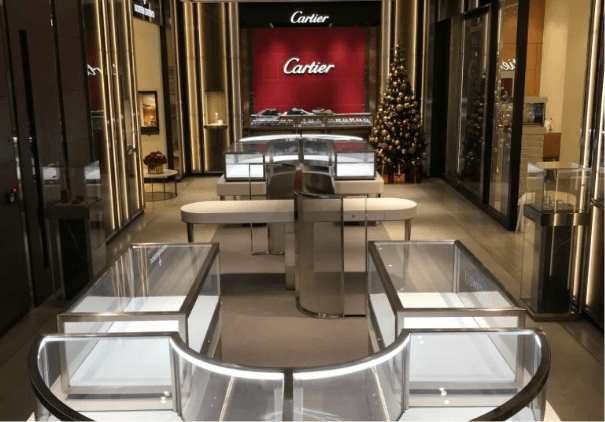
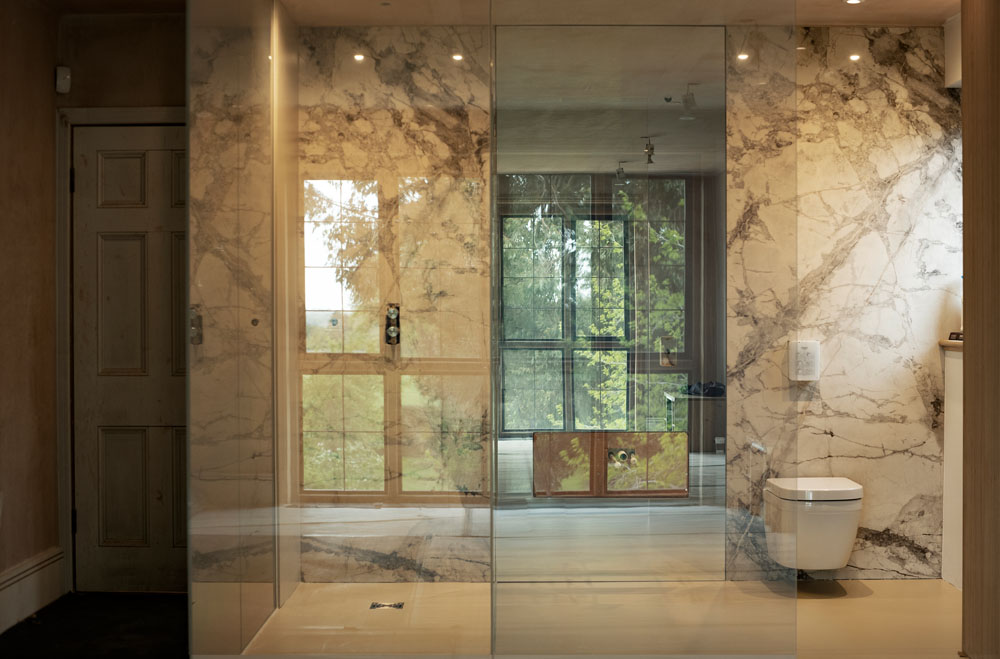
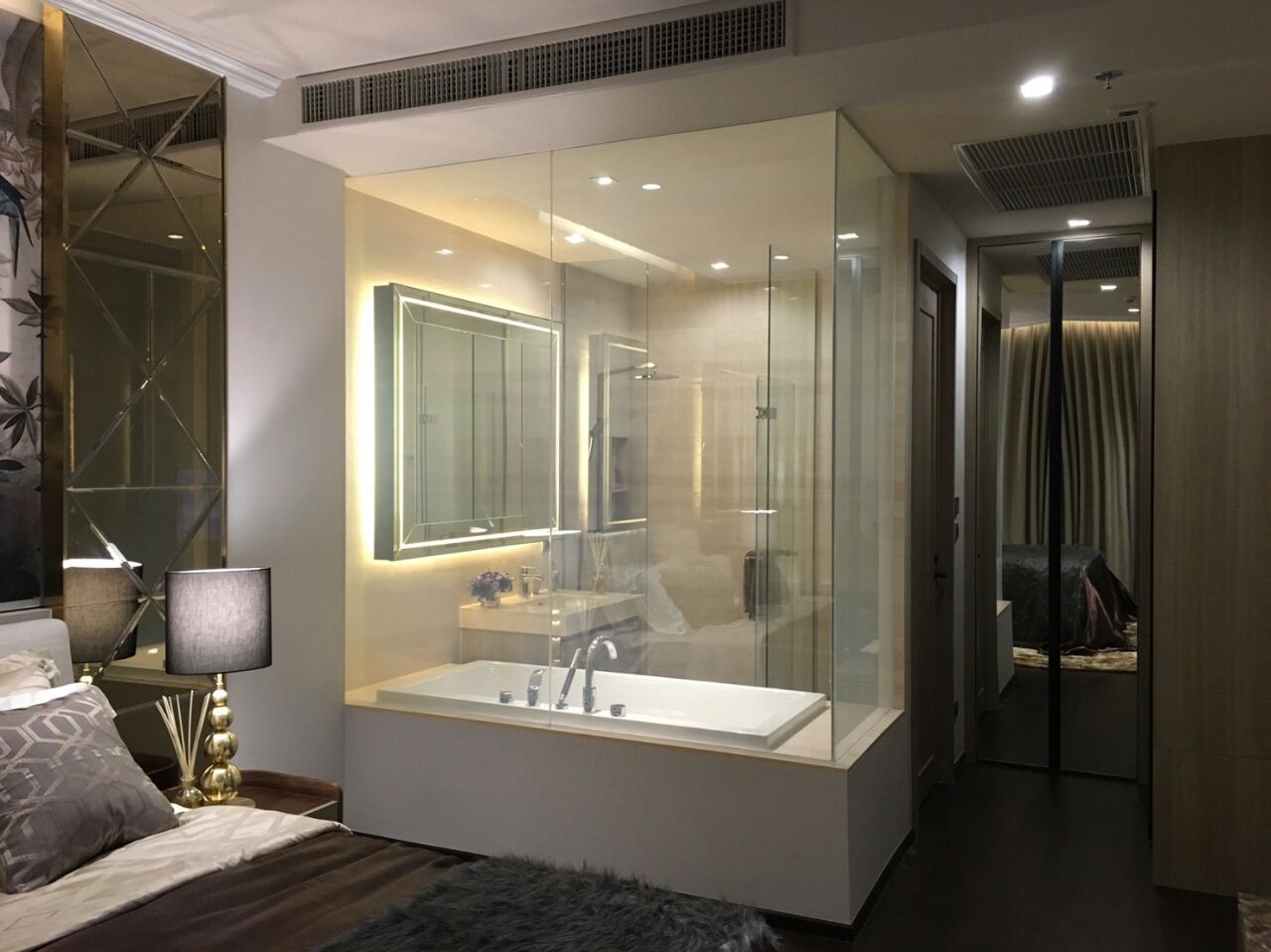
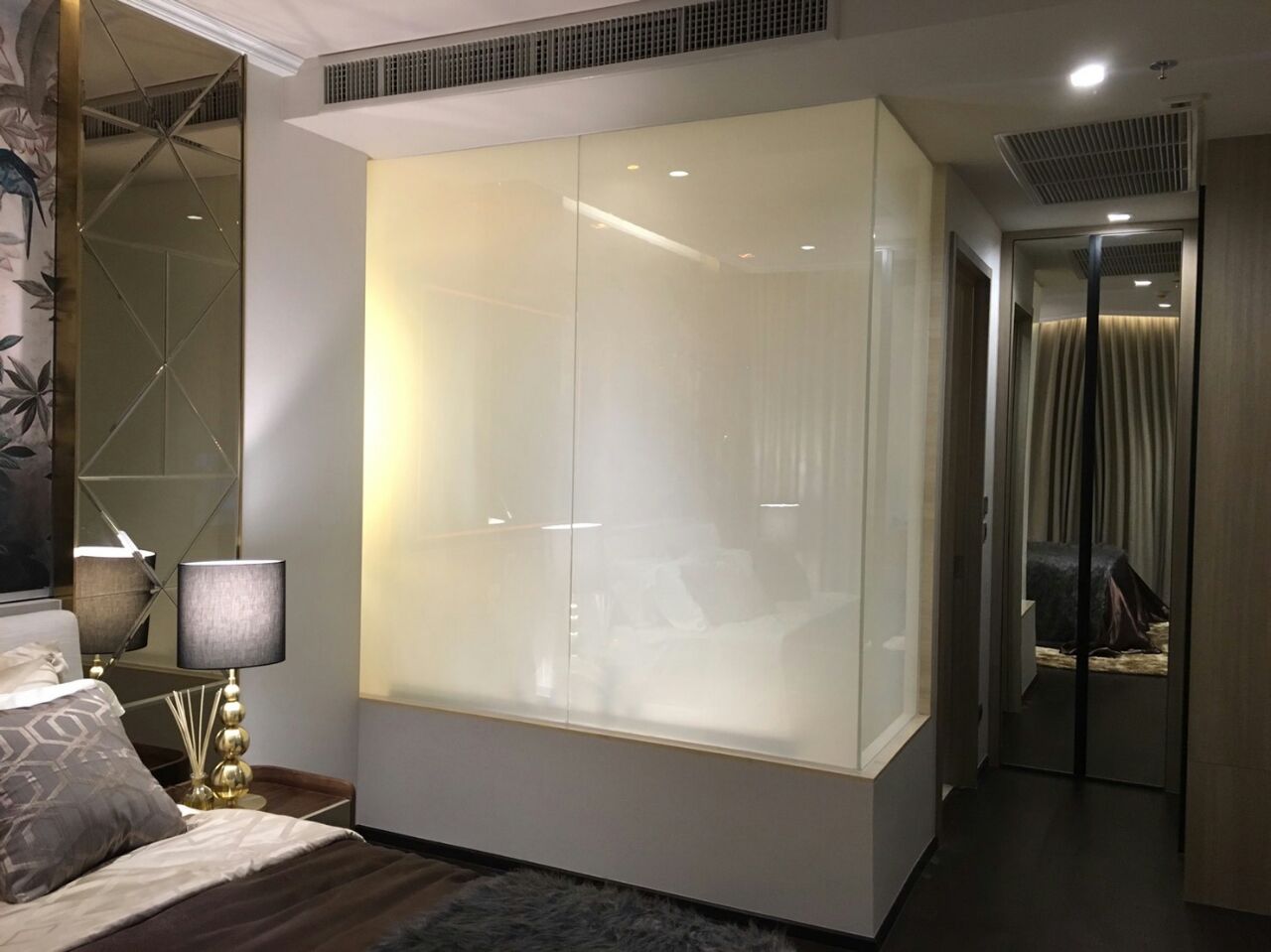
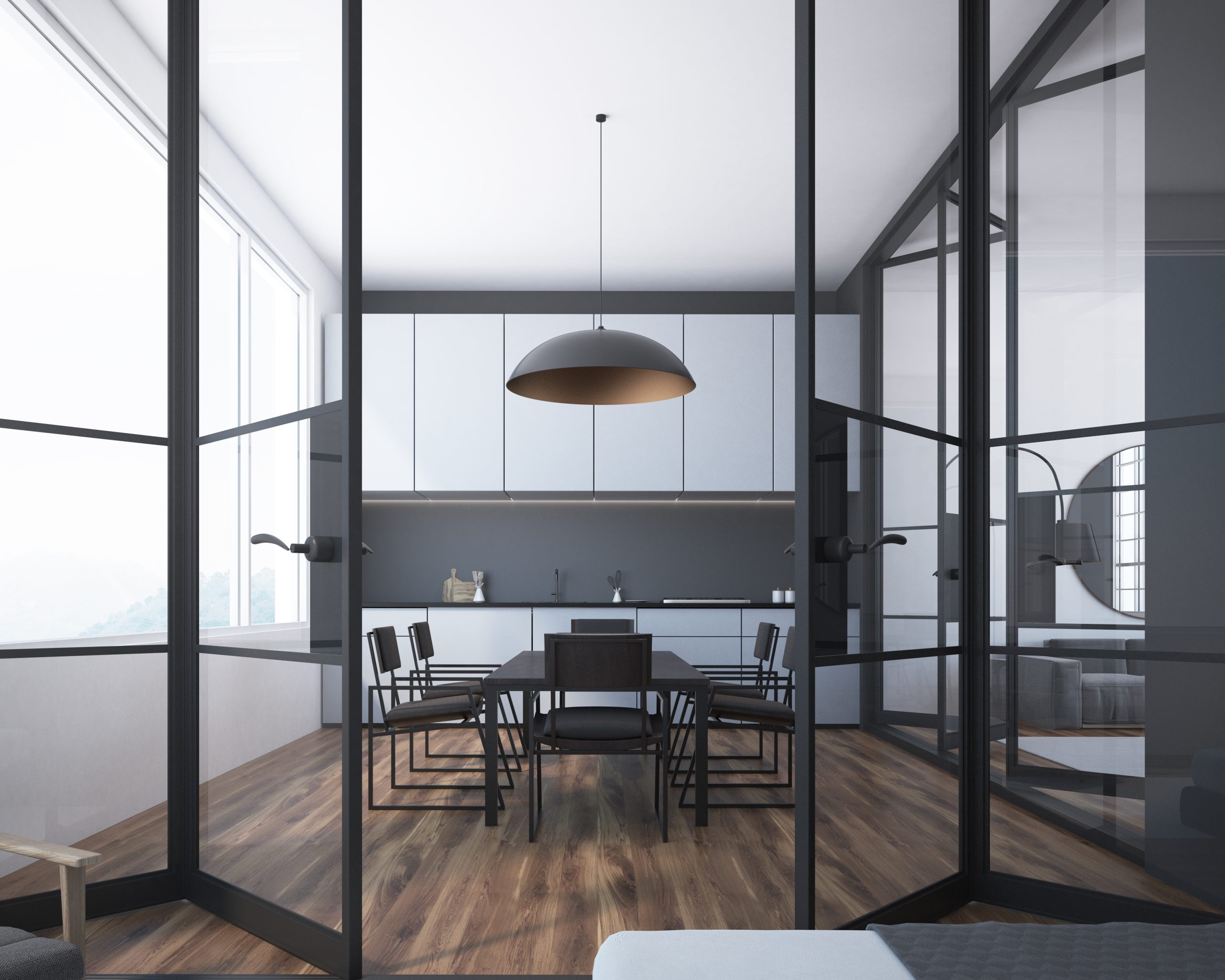
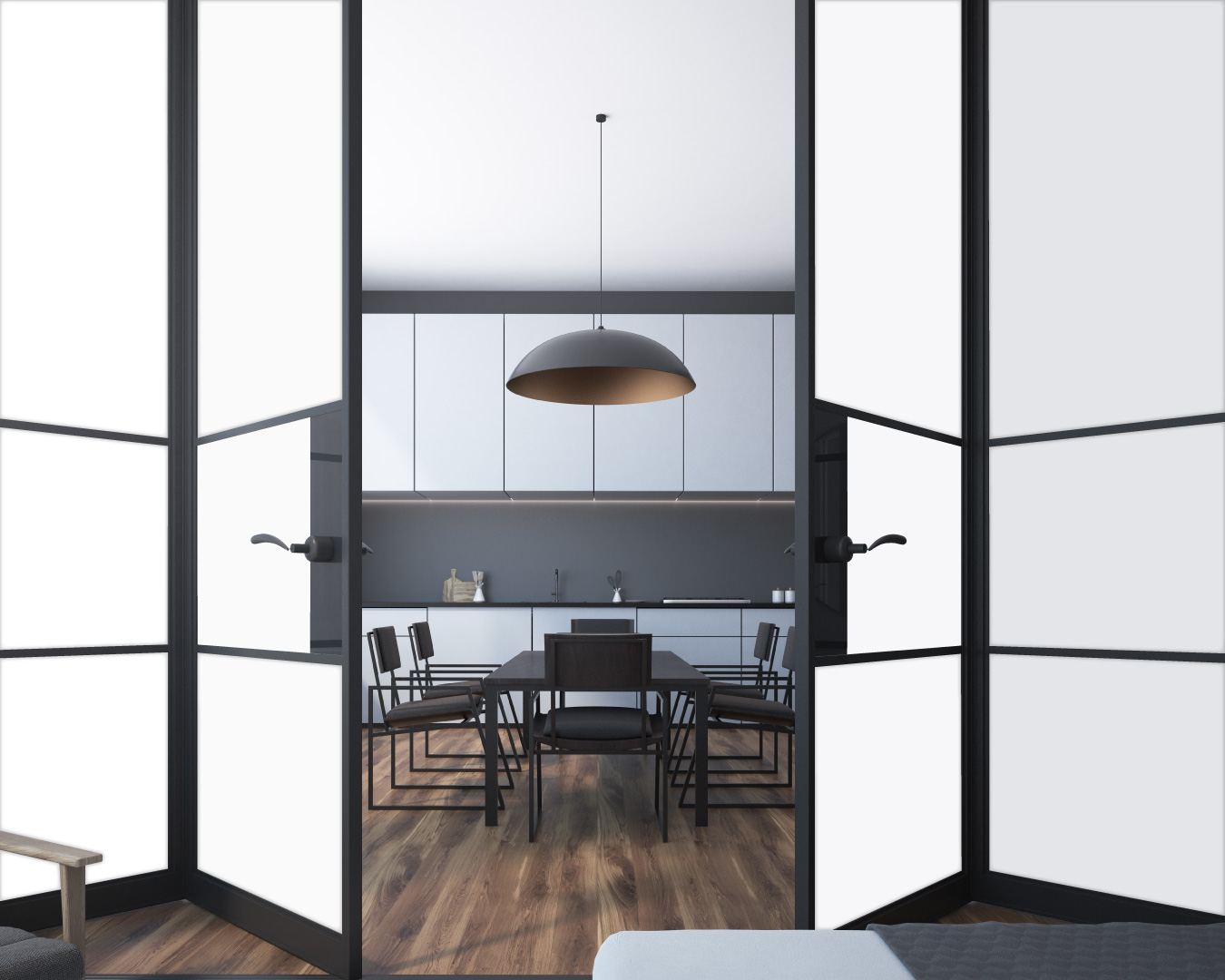
Frequently asked Questions
Our privacy glass works by utilising advanced PDLC (Polymer Dispersed Liquid Crystal) film. When an electrical current is applied, the liquid crystal molecules align, allowing light to pass through, making the glass transparent. When the current is switched off, the molecules mis-align, causing the glass to turn opaque or translucent, providing privacy.
Smart glass technology has come a long way in terms of durability and maintenance ease, making it a practical choice for hotels.
Yes, smart glass can often be retrofitted into existing structures without major modifications, making it a versatile solution for hotel renovations.
Smart glass reduces the need for artificial lighting and heating/cooling systems, leading to reduced energy consumption and cost savings.
Smart glass offers enhanced privacy control, but concerns about hacking or glitches can arise. Implementing security measures can address these concerns.
While the initial investment might be higher, the long-term savings in energy costs, maintenance, and improved guest experiences can make smart glass a valuable investment for hotels.
